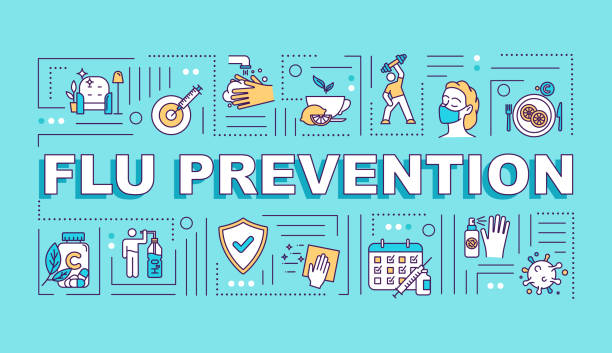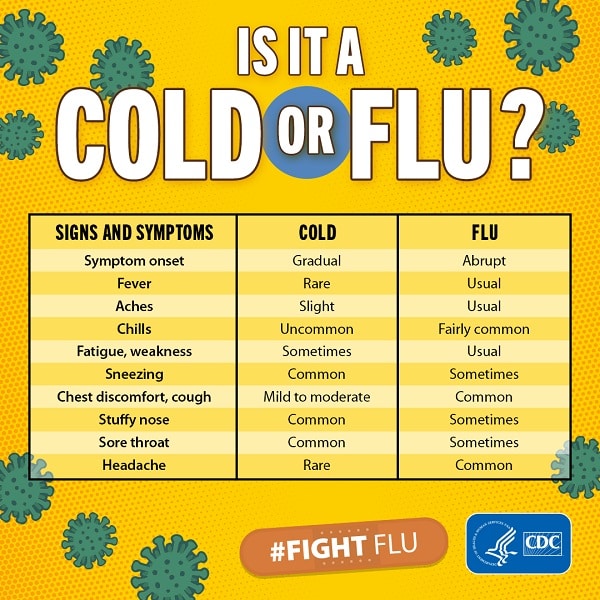December Wellness Spotlight
Cold and Flu Season Has Arrived! 
Influenza, also known as the flu, is a contagious respiratory disease that is caused by many different strains of viruses. The period of time in which the influenza virus is most contagious is referred to as flu season. This period is generally during the colder months of the year. This Wellness Spotlight includes information on transmission of the flu, risk factors, symptoms, diagnosis, treatment, and prevention.
Transmission and Risk Factors
Seasonal influenza can spread quickly. When a person coughs or sneezes, droplets containing the viruses are dispersed within the air and can infect people who are nearby. This virus can also be spread on hands when touching contaminated surfaces. It can be spread anywhere, but specifically, busy places such as schools, offices, childcare facilities or nursing homes are more likely to breed flu outbreaks.
Certain individuals are at an increased risk for developing severe flu illness. Some risk factors include:
- Adults age 65+
- Young children
- Pregnant women
- Those with:
-
- Heart disease
- COPD
- Diabetes
- Weakened immune systems
- Liver disorders
-
Symptoms, Diagnosis and Treatment
Flu symptoms usually start within 2 days after being infected by someone who has the virus.
Symptoms include:
- Fever
- Cough
- Sore throat
- Body aches
- Fatigue
- Runny nose
According to the CDC, your respiratory illness might be influenza if you have a fever, cough, sore throat, runny or stuffy nose, body aches, headache, chills, and/or fatigue. Those sick with the flu do not always get a fever and the flu can happen during any season. If you believe you have the flu, it is important to visit a doctor to receive the best care plan. Your healthcare professional may suggest a Polymerase chain reaction (PCR) testing which is a range of tests that can determine if you have the influenza. If needed, your healthcare provider may prescribe an antiviral medication.
People with mild symptoms should:
- Stay home to avoid getting others sick
- Drink plenty of fluids
- Rest
- Seek medical care if symptoms worsen
Prevention
- Avoid close contact with those who are sick

- Keep your distance
- Stay away from others if you are sick yourself
- Get the flu vaccine
- The CDC notes that recent studies have shown that flu vaccination reduces the risk of flu illness by 40-60%
- Wash your hands
- Washing your hands often with soap and water will help protect you from germs
- If not soap and water is available, use an alcohol-based hand sanitizer
- Avoid touching your eyes, nose, or mouth
- Sickness can occur if someone touches a contaminated surface, then touches their nose, eyes, or mouth
- Practice good health habits
- Disinfect frequently touched surfaces that are commonly used
- Get plenty of sleep
- Manage your stress
- Be physically active
- Drink plenty of fluids
- Eat healthy
What is the difference between a cold and the flu?
The CDC has a resource (pictured below) to evaluate your symptoms and determine if you have a cold or Influenza.

Resources
CDC- Flu Vaccine Effectiveness


